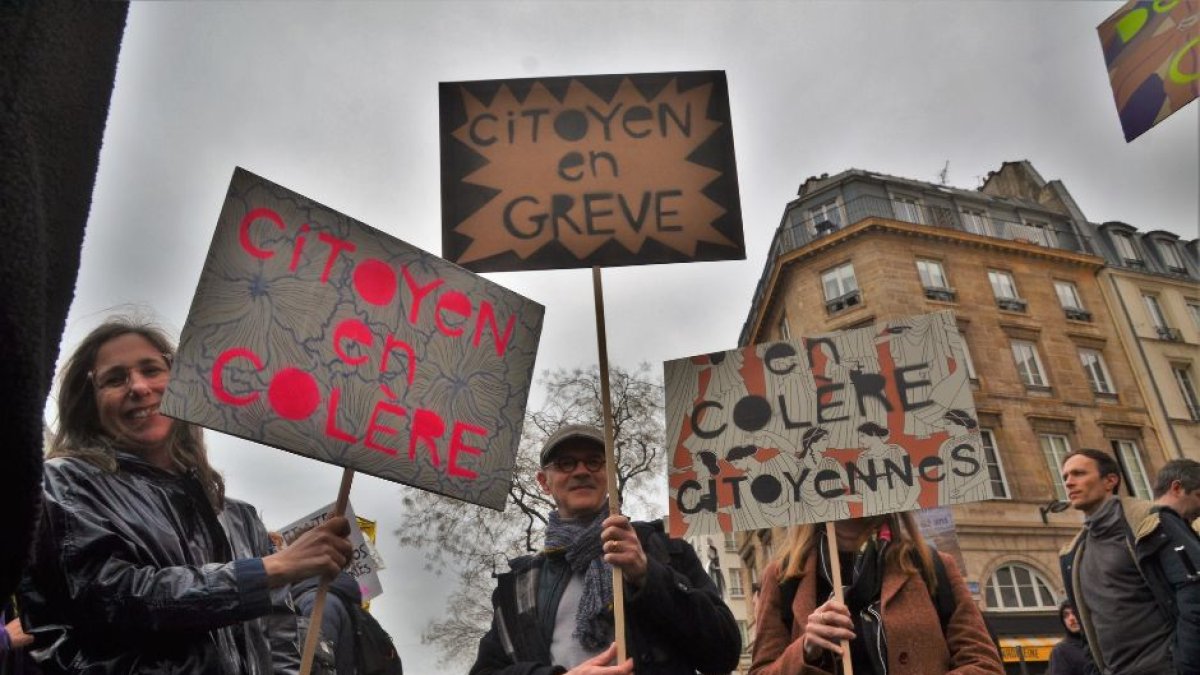Pension reform causes havoc in France: protests, fires and riots
Macron's government is facing nine days of strikes across the country. Protests have resulted in more than 450 people arrested and 441 police officers injured.

(Jeanne Menjoulet / Flickr)
President Emmanuel Macron's controversial pension reform passed last week in France, which has caused havoc across the country. As soon as it was announced that the retirement age would be raised from 62 to 64, citizens took to the streets and began a series of protests against this legislative change.
Protests, arson and other disturbances have been frequent not only in Paris, but also in major French cities such as Bordeaux. There, the access door to City Hall was set ablaze by the protests. The town's mayor, Pierre Hurmic, said on Twitter that he was "saddened by this act of vandalism."
However, the act of vandalism did not deter the mayor, who assured that, despite the fire, the government building would remain open as usual:
From peaceful protests to extreme riots
In the French capital, the situation does not seem to be improving. According to Minister of the Interior Gerald Darmanin in an interview with the French radio channel C News, a total of 903 fires were reported in Paris alone. However, the havoc has so far resulted in a total of 457 arrests in France and 441 police officers injured:
This is the result of the escalating protests. As the minister explained during his interview, the demonstrations escalated from being peaceful to riots spearheaded by the "extreme left" that "has to be fought":
In total, the minister assured, there were some 300 demonstrations throughout the country. The most crowded were the ones that took place this Wednesday. There were a total of 3.5 million protesters across France, CGT claimed, although the Interior Ministry reduced the figure to 1.3 million, as reported by DW. On Thursday, the union reported, a total of 3 million French people took to the streets in protest to the pension reform.
Charles III postpones his visit to France
The protests also had political consequences. The King of England, Charles III, postponed his visit to France until the situation returned to normal. It was Buckingham Palace that made the announcement, as reported in The Guardian, that the British monarch was suspending his state visit:
The French Elysée Palace soon announced that Charles III was delaying his visit to the country. Emmanuel Macron stated in a press release that the reason for the postponement of Charles III's trip and his queen consort, Camilla, was exclusively due to the situation with the protests:

























